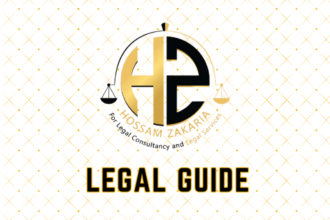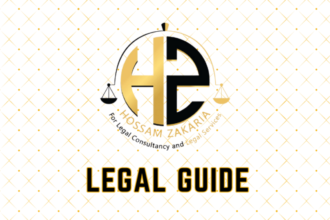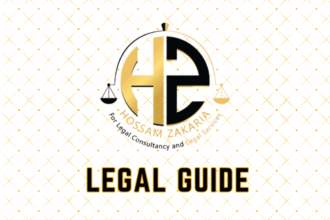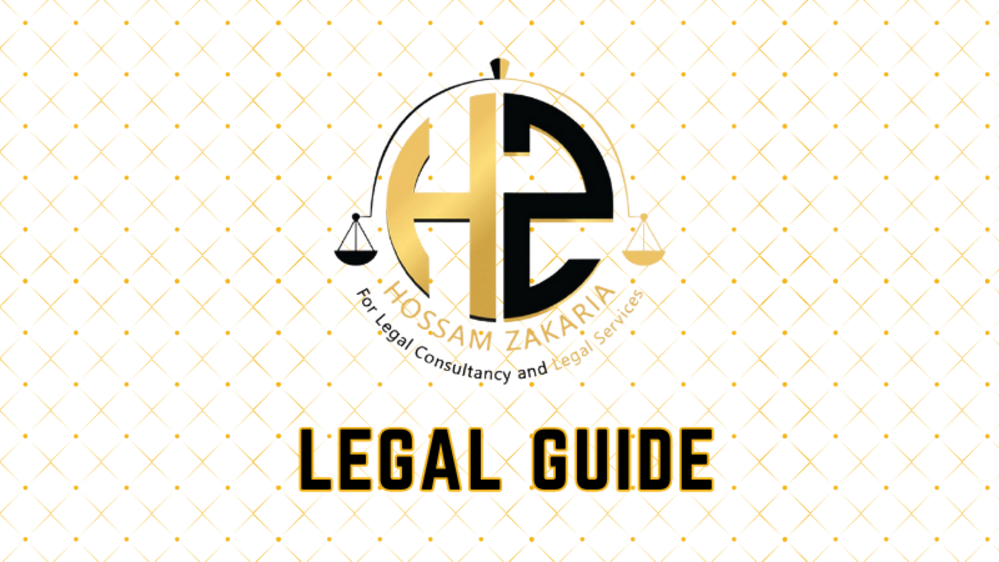Introduction
As the dynamic economic relationship between the United Arab Emirates (UAE) and Saudi Arabia continues to expand, the realm of international air transport law has grown increasingly significant for businesses and legal practitioners within the Gulf region. Recent regulatory updates in both countries, alignment efforts surrounding the Gulf Cooperation Council’s (GCC) shared aviation strategy, and intensified cross-border operations among UAE-based airlines and service providers demand a robust, compliant, and forward-thinking legal approach. For UAE stakeholders—executives, in-house counsel, compliance leaders, and aviation industry professionals—comprehending the legal foundations and implications of Saudi Arabia’s international air transport agreements (ATAs) is not simply advantageous; it is essential for maintaining operational continuity, seizing business opportunities, and avoiding regulatory pitfalls in a rapidly evolving market.
This consultancy-grade article offers a deep dive into the legal architecture underpinning Saudi Arabia’s international air transport agreements, focusing specifically on nuances, risks, and strategies relevant for UAE stakeholders. Grounded in references to official UAE and Saudi regulations—including Federal Decrees, GCC frameworks, and Civil Aviation Authority directives—this analysis demystifies treaty provisions, compliance requirements, and the practical steps for safeguarding business interests. With the advent of recent UAE law updates (such as Federal Decree-Law No. 15 of 2023 on Civil Aviation and amendments to competition rules) and Saudi’s accelerating push towards Vision 2030, understanding these agreements is more crucial than ever. Whether your organization is charting new flight routes, managing cross-border logistics, negotiating slots, or overseeing employee mobility—this resource will equip you with actionable legal insights for 2025 and beyond.
Table of Contents
- Legal Framework Saudi Air Transport Agreements
- UAE Law 2025 Updates and Civil Aviation Decrees
- Core Provisions of Saudi Arabia International ATAs
- Practical Implications for UAE Businesses
- Comparing Past and Present Regulations
- Compliance Risks and Penalties
- Case Studies and Examples
- Strategic Compliance for UAE Stakeholders
- Conclusion and Best Practices
Legal Framework Saudi Air Transport Agreements
The Multilateral and Bilateral Context
Saudi Arabia’s international air transport agreements are rooted in a mesh of multilateral conventions, bilateral treaties (including those with the UAE), and regional GCC regulations. The backbone of these agreements is the Convention on International Civil Aviation (Chicago Convention, 1944), to which both Saudi Arabia and the UAE are signatories. Building on this, Saudi Arabia has negotiated scores of bilateral Air Services Agreements (ASAs) and Memoranda of Understanding (MoUs) with partner states—including comprehensive arrangements with the UAE Civil Aviation Authority since 2005, most recently updated in 2022.
Saudi Civil Aviation Law and GACA Directives
Within Saudi jurisdiction, the Civil Aviation Law (Royal Decree No. M/44, 2005, as amended in 2017), administered by the General Authority of Civil Aviation (GACA), governs the execution and operationalization of these international agreements. It sets foundational rules for traffic rights, slot allocation, safety, environmental obligations, and commercial freedoms.
Complementing Saudi law, the GCC Unified Aviation Policy (2012) facilitates coordination and harmonization among GCC states, impacting how cross-border airlines—including those from the UAE—can negotiate, operate, and resolve disputes in Saudi airspace.
UAE Law 2025 Updates and Civil Aviation Decrees
Federal Decree-Law No. 15 of 2023 on Civil Aviation
The UAE’s regulatory ecosystem is experiencing significant transformation with the recent adoption of Federal Decree-Law No. 15 of 2023 on Civil Aviation. The decree introduces enhanced compliance frameworks for international operations, harmonizes standards with ICAO requirements, and positions UAE carriers—such as Emirates and Etihad—to better align with international and regional partner obligations, including those with Saudi Arabia.
Key Complementary UAE Instruments
- Cabinet Resolution No. 40 of 2024 (Implementation of Air Service Agreements)
- Ministerial Circular No. 12 of 2024 (Compliance Protocols for Cross-Border Operations)
- Competition Law Amendments (Federal Decree-Law No. 22 of 2022, applicable to airline alliances and code-share agreements)
These legal updates intensify the need for robust compliance, risk management, and real-time legal advisory for any UAE-based entity involved in Saudi or broader GCC aviation activities.
Core Provisions of Saudi Arabia International ATAs
Traffic Rights and Freedoms of the Air
Saudi Arabia’s international ATAs—particularly those with the UAE—define key traffic rights (first to fifth freedoms) in line with international best practice. These rights affect:
- Scheduling of flights (frequency, routes, origin-destination points)
- Cargo transport and air mail
- Interchange and code-sharing arrangements
- Designation of carriers for bilateral rights
Safety, Security, and Environmental Clauses
ATAs mandate adherence to ICAO standards, reciprocal security protocols (passenger and cargo screening), and increasingly, environmental controls (notably emissions and fuel efficiency). The 2021 MoU between the UAE and Saudi Arabia specifically elevated requirements on sustainable aviation and coordinated response to global health emergencies.
Ownership and Control Requirements
Most agreements require carriers designated by each party to be substantially owned and effectively controlled by their respective governments or nationals. Recent amendments are granting increased flexibility—facilitating public-private partnerships and investment opportunities for GCC nationals (including UAE investors) in Saudi aviation ventures.
Practical Implications for UAE Businesses
Licensing, Market Access, and Operational Risks
For UAE-based airlines, logistics providers, and support service companies, these agreements dictate conditions for market entry, ground handling rights, ticketing, and the establishment of representative offices in Saudi Arabia. Compliance with Saudi GACA licensing directives and related labor, tax, and customs laws is non-negotiable, with violations carrying the risk of license suspension or visa revocation.
Cross-Border Employment and Secondment Issues
Airline HR managers must also navigate dual compliance under both UAE labor regulations (Federal Decree-Law No. 33 of 2021 and subsequent amendments) and Saudi labor laws (Labor Law, Royal Decree No. M/51, 2005, as amended), especially when seconding staff across borders, managing payroll, and upholding workers’ rights within joint ventures or franchise entities.
Taxation and Financial Compliance
Under ATA provisions—supplemented by the UAE-Saudi Double Taxation Agreement (2018)—airlines are typically exempt from local taxes on income and equipment; however, regulatory demands for transparent financial reporting and anti-money laundering compliance have tightened since 2022, with ongoing scrutiny by both the UAE Central Bank and the Saudi Zakat, Tax and Customs Authority.
Comparing Past and Present Regulations
| Area | Pre-2021 Framework | Current Framework (Post-2023) |
|---|---|---|
| Ownership Criteria | Strictly limited to national majority ownership | Allows greater GCC investor participation, broader eligibility |
| Environmental Standards | General ICAO reference, minimal reporting | Mandatory emission reporting, sustainability requirements in UAE-Saudi MoU |
| Compliance Monitoring | Voluntary notifications, limited oversight | Proactive, joint GACA and UAE CAA audits; digital compliance tracking |
| Penalty Regimes | Discretionary; relatively minor fines | Structured penalties, public naming, expanded suspension powers |
| Slot Allocation | Manual allocations, legacy carriers prioritized | Transparent IT-based system, fair access for new entrants |
Compliance Risks and Penalties
Failure to comply with either Saudi or UAE regulatory mandates under international air transport agreements can subject organizations to:
- Suspension or revocation of air operator licenses (AOCs)
- Significant financial penalties (up to SAR 5 million per infraction under Saudi law, AED 1 million+ under UAE Decree-Law No. 15 of 2023)
- Criminal investigations for breaches related to safety, anti-bribery, or anti-money laundering protocols
- Public naming and shaming for repeat corporate offenders (as per UAE Aviation Compliance Portal)
- Reputational damage and loss of route rights
Visuals Suggestion: Penalty Comparison Chart
| Category | Saudi Arabia (SAR) | UAE (AED) |
|---|---|---|
| Safety Violation | Up to 5,000,000 | Up to 1,000,000 |
| Environmental Breach | 2,000,000 | 500,000 |
| Labor Non-Compliance | 1,000,000 | 500,000 |
| License Suspension | Immediate | Immediate |
Case Studies and Examples
Case Study 1: Airline Code Sharing and Competition Law
Scenario: A UAE-registered airline seeks to launch a code-share agreement with a prominent Saudi carrier, sharing passenger routes between Abu Dhabi and Jeddah.
Legal Considerations: Both the UAE and Saudi competition authorities (in line with UAE Competition Law amendments 2022 and Saudi Competition Law 2019) require notification and, in some cases, prior approval for joint ventures or commercial alliances that may impact market competition.
Risk: Failure to notify can result in heavy fines, forced unwinding of agreements, and loss of market access.
Case Study 2: Labor Secondment Compliance
Scenario: A UAE maintenance and engineering firm seconds a group of licensed aircraft engineers to a Saudi partner airline.
Legal Considerations: Both countries’ labor laws require clear contracts, work visa sponsorship, social security contributions, and observance of local occupational safety protocols.
Risk: Non-compliance can trigger sanctions from both Ministries of Human Resources, including bans on operating permits and worker blacklisting.
Strategic Compliance for UAE Stakeholders
Checklist: Operating in the Saudi Aviation Market
| Action | Best Practice | Regulatory Reference |
|---|---|---|
| License Verification | Confirm validity of GACA-issued permits and notifications with UAE CAA | Saudi GACA Regulation No. 28/2018; UAE Federal Decree-Law No. 15/2023 |
| Labor Compliance | Ensure dual contracts, proper visa sponsorship, and safety trainings | Saudi Labor Law, M/51; UAE Labor Law, 33/2021 |
| Financial Reporting | Follow latest anti-money laundering protocols; transparent revenue declarations | Saudi Central Bank (SAMA) AML Rules; UAE Central Bank AML Regulations |
| Competition Approvals | Obtain merger/joint venture clearances before launching new alliances | Saudi Competition Law, UAE Federal Decree-Law No. 22/2022 |
| Sustainability | File emissions reports and sustainability action plans as required | UAE-Saudi MoU 2021, ICAO CORSIA Guidelines |
This compliance checklist can serve as an operational reference visual for legal, compliance, and HR departments navigating Saudi aviation market entry.
Conclusion and Best Practices
Saudi Arabia’s international air transport agreements are risk-rich yet opportunity-laden terrain for UAE businesses, especially as legal ecosystems on both sides evolve to support Vision 2030 and the UAE Centennial 2071. Critical shifts—ranging from ownership and sustainability mandates to digital compliance and audit expansion—require proactive, knowledgeable engagement. The legal landscape of 2025 demands that UAE carriers, service providers, and investors not merely react to regulation but anticipate, strategize, and continually enhance their compliance frameworks.
Best practices for UAE stakeholders include: ongoing legal monitoring (through UAE Ministry of Justice circulars and GACA bulletins); preemptive consultation with aviation law specialists; tailored compliance management programs; cross-border HR training; and robust contract vetting for all international alliances. Regularly updating internal policies to reflect new decrees—such as Federal Decree-Law No. 15/2023 and latest Saudi amendments—will be essential to retain competitive edge and mitigate exposure.
As international air mobility emerges as an engine for economic integration, those UAE businesses that combine legal foresight with operational agility will be best positioned to unlock the next decade of GCC aviation growth—while avoiding the costly pitfalls of regulatory missteps.



